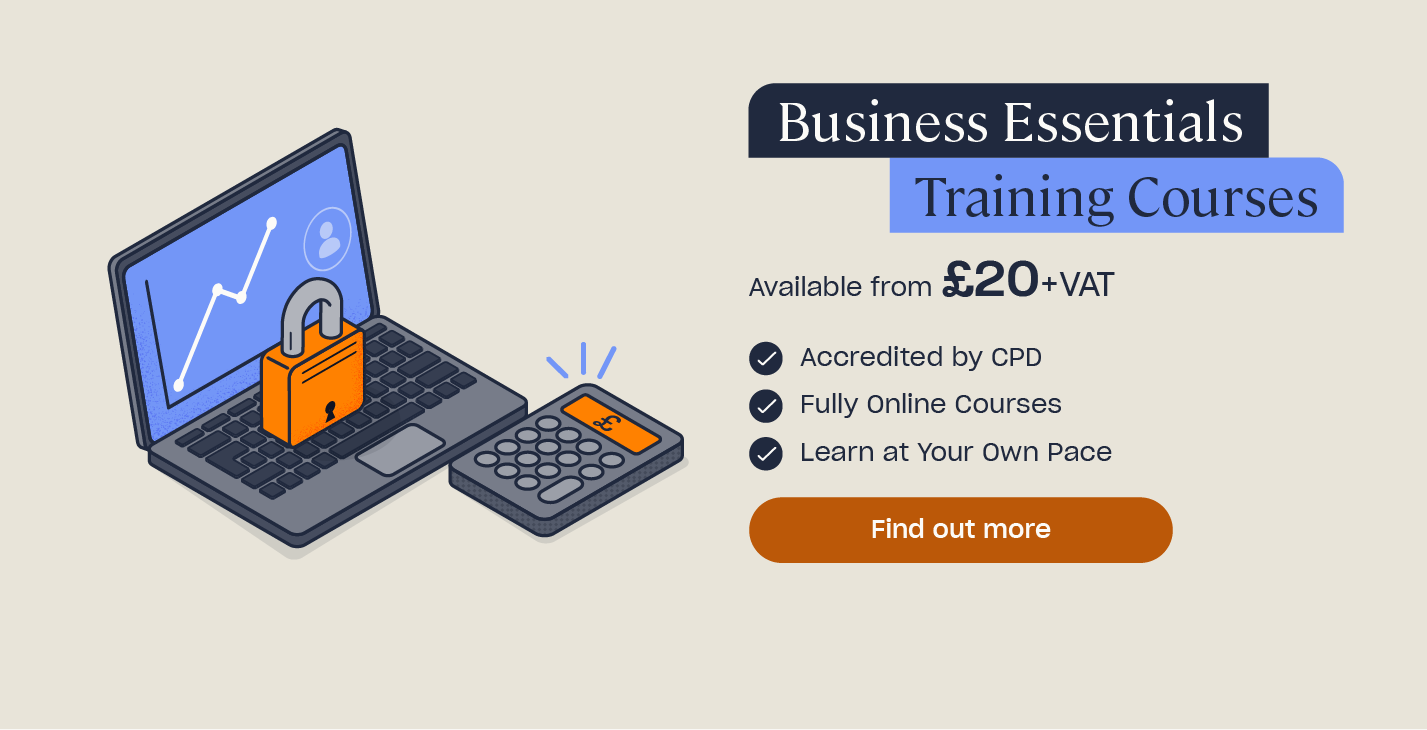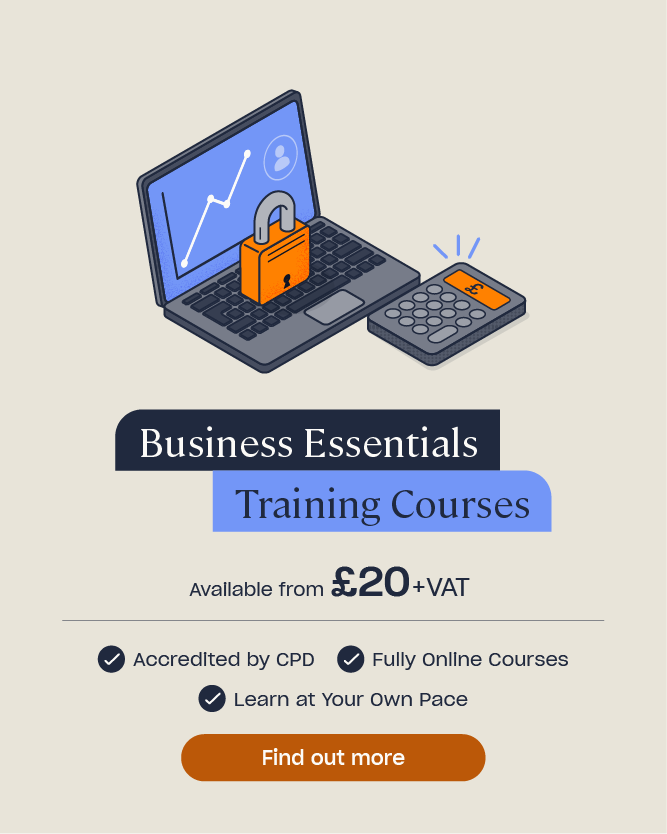Critical Thinking at Work
Critical thinking is a useful skill to have in all situations, but it’s particularly useful at work. Critical thinking at work enables you to make better decisions, better understand problems and find the right solutions with the right team members. In this article, we’ll look at what critical thinking is and why it’s important, plus give you some tips for how to improve your critical thinking skills in and out of the workplace.

What is Critical Thinking?
Critical thinking is a soft skill that’s valuable in all types of workplaces, industries and job roles. Being able to think critically enables you to identify problems, carefully analyse the facts and options, then make the right decision or choose the best solution. It helps you to look at situations objectively to better understand the best course of action.
Being a good critical thinker means you’re able to put your beliefs and opinions to one side with ease, study the situation objectively and without bias, and identify which information is valuable or should be discarded.
Critical thinking is a desirable skill in all employees at all levels, but especially for managers and those in leadership positions who direct a team or a project and who are required to make multiple important decisions every day.
Why is Critical Thinking Important in the Workplace?
Critical thinking is important in the workplace whether you work in retail, hospitality, teaching, business, healthcare or construction. Possessing effective critical thinking skills enables you to be a more effective and efficient employee and is highly desirable to both present and future employers.

Critical thinking is important in the workplace because it leads to:
- Improved problem solving. Critical thinkers can analyse complex situations, identify risks and inefficiencies and develop effective, timely solutions for individuals, teams and organisations.
- Informed and logical decision-making. By identifying relevant information and evaluating it objectively, critical thinking leads to well-considered decisions.
- Enhanced communication. Critical thinking promotes clear and effective communication by helping you ask the right questions, avoid misunderstandings and tailor messages to your audience.
- Greater adaptability. Critical thinking enables flexibility and allows you to change your perspective or approach when presented with new evidence or shifting goals.
- Stronger teamwork. Critical thinking supports the analysis of team members’ strengths, helping assign roles more effectively, motivate individuals and enhance collaboration.
- Conflict resolution skills. Critical thinkers can better understand differing viewpoints, mediate workplace conflicts and guide team members towards fair and respectful resolutions.
- Enhanced productivity. By identifying opportunities for improvement, critical thinking helps increase overall workplace productivity.
- Better time management. Critical thinking helps you to prioritise tasks, delegate and plan how to use your time more effectively.
- Continuous self-improvement. Critical thinking encourages self-reflection, openness to feedback and a desire to learn and grow, both personally and professionally.
- Creative thinking. By considering all relevant information and viewpoints, critical thinkers can think outside the box to come up with more creative ideas and solutions.
- Improved awareness of risks and opportunities. Critical thinking enables early detection of issues and a more proactive response.
- Increased self-confidence. Over time, critical thinking helps you to become more self-assured and have full confidence in your abilities, decisions and self-worth.
Critical Thinking in the Workplace Examples
Consider the following critical thinking in the workplace scenarios, based in hospitality, education, construction and restaurant settings:
Critical thinking in hospitality example:
A hotel guest complains that their room is too noisy due to nearby building work. Instead of simply offering a refund, the receptionist checks room availability and arranges a quieter room, adding a complimentary breakfast for the inconvenience. The guest feels heard and leaves a positive review despite the initial problem.
Critical thinking in education example:
A teacher notices several students struggling with a maths concept, despite following the standard lesson plan. Instead of repeating the same approach again, she designs a hands-on activity to make the topic more relatable. The students engage more actively and show clear improvement in their understanding.
If you work in education, it is just as crucial for you to empower your students to use critical thinking to navigate their daily lives. Learn how you can help your pupils to use critical thinking in the classroom in our article: How to Encourage Critical Thinking in the Classroom.
Critical thinking in construction example:
A site manager spots that the delivery of key materials will be delayed, potentially halting progress on the building works. Rather than waiting for the shipment, he reorganises the schedule to prioritise tasks that don’t rely on those materials. This keeps the project moving and avoids costly downtime.
Critical thinking in a restaurant example:
During a busy dinner service, a head chef notices that orders are backing up due to a malfunctioning oven. Instead of panicking or stopping service, he reallocates some of the dishes to alternative cooking methods and temporarily updates the menu. This keeps the kitchen running smoothly and customers satisfied.
How to Improve Critical Thinking Skills
H2: How to Improve Critical Thinking Skills
There are many ways you can improve your critical thinking skills, whether you’re looking to develop them for a new job role, a promotion or as part of your personal or professional development plan. Here are 15 ways to improve critical thinking skills:
- Gather and evaluate only the relevant information – always aim to collect as many relevant facts as possible and, if information is missing, identify what is absent. Practice identifying which information is relevant and which should be discarded.
- Assess your sources – always question where your information comes from. Ask who provided it, whether they might be biased or lack expertise and consider how that affects the reliability of the data.
- Conduct independent research – if existing data is insufficient or questionable, be proactive and ask questions, speak to reliable sources like colleagues and professional contacts, and use reputable online sources.
- Ask questions – make a habit of questioning everything before taking action, as this promotes deliberate, well-reasoned decision-making and reduces the risk of error.
- Remain open to improvement – accept that everyone makes mistakes and review your decisions regularly to use errors as opportunities to improve.
- Think independently – develop the habit of forming your own conclusions instead of relying on the opinions of others.
- Consider multiple perspectives – even if you feel certain about something, consider other viewpoints to gain a broader understanding and improve team collaboration.
- Clarify your goals – set yourself clear SMART goals for every task and keep them in mind when analysing situations or solving problems to ensure your decisions are aligned with your objectives.
- Understand your own biases – recognise your values, strengths, weaknesses and biases, as self-awareness enables you to make more objective, balanced decisions.
- Improve your observation skills – pay close attention to your environment and the behaviour of others, as observation helps you detect problems early.
- Practice active listening – listen carefully to your colleagues’ ideas and feedback, as it will help you better understand different viewpoints and find more collaborative solutions.
- Further your education – expand your knowledge at every opportunity and develop a continuous learning approach to life and work.
- Seek hands-on learning opportunities – volunteer for tasks and take the initiative to develop at work whenever you have the opportunity.
- Network with other professionals – build relationships with others in your industry and learn from their experiences and knowledge as this can help you tackle similar problems and develop new strategies in the future.
- Play some critical thinking games – whether solo or as a team, critical thinking games help to develop skills like analysis, inference and pattern recognition to enhance your critical thinking in a more engaging way.
Critical thinking is an important skill in the workplace, as it helps you to make informed decisions, solve problems more effectively and collaborate better with others. It’s also a highly desirable soft skill that employers look for in their employees, so it’s worth spending some time improving your critical thinking skills to help further your career.
Further Resources:
- Business Essentials Courses
- Communication Skills Quiz
- How to Improve Active Listening in Communication
- 10 Employability Skills Employers Look For
- Writing A Professional Development Plan – Example & Template
- What are Personal Development Goals for Work?
- A Personal Development Plan (PDP) Guide & Template











